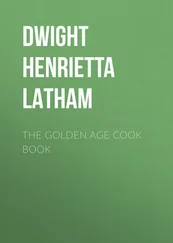Michal Ajvaz - The Golden Age
Здесь есть возможность читать онлайн «Michal Ajvaz - The Golden Age» весь текст электронной книги совершенно бесплатно (целиком полную версию без сокращений). В некоторых случаях можно слушать аудио, скачать через торрент в формате fb2 и присутствует краткое содержание. Год выпуска: 2010, Издательство: Dalkey Archive Press, Жанр: Современная проза, на английском языке. Описание произведения, (предисловие) а так же отзывы посетителей доступны на портале библиотеки ЛибКат.
- Название:The Golden Age
- Автор:
- Издательство:Dalkey Archive Press
- Жанр:
- Год:2010
- ISBN:нет данных
- Рейтинг книги:4 / 5. Голосов: 1
-
Избранное:Добавить в избранное
- Отзывы:
-
Ваша оценка:
- 80
- 1
- 2
- 3
- 4
- 5
The Golden Age: краткое содержание, описание и аннотация
Предлагаем к чтению аннотацию, описание, краткое содержание или предисловие (зависит от того, что написал сам автор книги «The Golden Age»). Если вы не нашли необходимую информацию о книге — напишите в комментариях, мы постараемся отыскать её.
is Michal Ajvaz’s greatest and most ambitious work.
The Golden Age
The Golden Age — читать онлайн бесплатно полную книгу (весь текст) целиком
Ниже представлен текст книги, разбитый по страницам. Система сохранения места последней прочитанной страницы, позволяет с удобством читать онлайн бесплатно книгу «The Golden Age», без необходимости каждый раз заново искать на чём Вы остановились. Поставьте закладку, и сможете в любой момент перейти на страницу, на которой закончили чтение.
Интервал:
Закладка:
Genuine reality is the birth of reality, and the birth of reality is an act that is spun out of myth and alive with spirits. We see the world in the convex mirror of a weird obsession that belongs not to us but to the monster that stalks the halls of our consciousness; all plane mirrors are blind. Fo was Dru and the squid, the admiral and the cook, Nus and Isili; he was the ocean the squid swam through, in which Isili’s body was lost; he was the multiform landscape of Umur. Fo’s character was composed by the gathering into itself of all these images, as they appeared to him over manifold, wonderful encounters. And Mii knows what sickness had consumed Fo: it was the horror and the delight evoked by his self-encounter and encounter with the world and all the figures, animals, deities, spectres, landscapes and stars that make of us what we are, and also delight and horror at the blurring of their shapes in the mute, monotonous pulsation of the great medusa of the cosmos.
Mii knows too that in his hatred Taal had made the right decision; Prince Fo was worthy of celebration in a marvellous, terrible statue made of a quivering, transparent material and full of predatory beasts. Had the king asked for a statue of marble, she would be asking him now if she could make it in jelly. Although she had tricked Taal into changing the task, she is convinced that a statue of jelly is more marvellous than a statue of water (assuming that it were possible to create such a statue), that the only material suitable for Fo’s apotheosis is one that is not of the four elements, so that it almost might not exist while being present within all the elements as an anguished, delightful possibility — the possibility of death and a return to the beginning that elicits transformation. Within solid matter there lives a shapeless porridge that is a dream of cosmic decay; within liquids it is a slow melody of turbidity; within fire it is the aspect of the flame that does not tend to the purification of the shape but to its warping, by preparing it to receive moisture; within air it is the gradual transformation of gases and vapours into a dark sediment that coats the surfaces of objects, thus healing over the wound inflicted by the blade that cut these objects free of the world.
A pity, she thinks, that I could not transform the whole book of Fo into a forest of statues that would stand somewhere out on the plain; or I could have colonized a town with statues, set statues of jelly in its streets and lanes, in its thoroughfares and in its courtyards, on the staircases of its buildings, in its bedrooms and hallways, in its cathedrals and in its mysterious, stinking public conveniences. But Mii must choose one scene only, and it takes her a long time to decide. She pictures Dru wandering about Europe, an out-of-humour Dru lying in his bed in the stargazer’s villa on a night when the sky is overcast; she considers depicting a scene of life on that other planet — one of the city’s curve-nosed sleighs, perhaps, in which Dru’s extraterrestrial lover would be sitting — or creating a group scene that would address the pages covered in the unreadable script of that other planet. She is for a long time given to thoughts of a statue that would illustrate some of the book’s later pages, where Fo’s writings coursed around the lines of the forester’s records — this statue would show both of these worlds.
But in the end Mii opts to create a statuary group depicting the scene with the giant squid, and in which she will give Dru the face of Fo. She is more and more certain that the moment the king looks into the great eyes of the monster is the secret heart of Fo’s work. She wants her statue to show a hero confronted with the greatest of all dangers, a terrible enemy that resides at the farthest point of his fear, in the last chamber of the labyrinth of his nightmares. She wants it to be apparent that the moment Dru first beheld the face of the awful beast, he saw himself in it: now he understood that what he most feared was also what he most desired — this vision of awfulness was also himself, and it was in this that he should perish. Mii wants the statue to express Dru’s hatred and also his love of the monster and himself, just as he loves and hates Isili — for indeed it seems to Mii that Dru must hate his beloved fiancée for being an obstacle on his journey to the sea bottom, to his joining the monsters that reside there, his brothers and sisters, his sweet underwater lovers with their deep eyes and beautiful undulating tentacles. Mii understands that this ironical heart is not the sort one usually finds in books: it is not a concentration of the sense of Fo’s work, nor does it reveal this sense. Rather, this encounter of the hero and the monster that smashed his world seems to subvert any possible orientation in one’s reading and instil an uncertainty in the work that anticipates its meaning and thus is always able to escape it.
Within ten days a ship appears in the harbour at Devel; out of this Mii’s assistants carry a great many heavy barrels, which they then convey up to the palace. At the place in the courtyard where the statue should stand, Mii has a great tent erected. The barrels from the ship disappear beneath its canvas. From this time on, Mii spends every day and every night in the tent. Apart from her assistants, who never speak a word, no one knows what is going on inside. Taal walks about the courtyard and around the tent, or he stands on the balcony looking down on the tent’s roof. In the evening, lamps are lit inside, and they burn all night, casting strange shadows on the tent walls. In these Taal sometimes recognizes Mii’s face, and, as the lamps travel from one point to another, the greenish shadow of an enormous Fo in profile creeps across the canvas before it dwindles away. By the light of the moving lamps it is impossible for Taal to tell which face in the mime of shadows belongs to a living person and which to a statue; he has the impression he can see his son’s lips moving and his arms reaching out toward him. The activity in the tent hardly makes any sound — just a kind of quiet squelching and slapping. But occasionally a scream of pain penetrates to every corner of the silent palace and shakes awake all its occupants. That this is the cry of a careless, sleep-starved assistant who had been bitten by a fish, no one knows. At the time Gato was preparing to enter the statue, Hios would remember these night-time wails with great anxiety.
Taal is puzzled. At first he thinks that Mii is hiding in the tent in order to conceal from him for as long as possible the fact that she is incapable of accomplishing the task; but the moving, greenish shadows, the spooky squelching sounds and the night-time screams soon make him nervous. The king begins to entertain the belief that Mii is a sorcerer able to create statues out of water, that perhaps she has summoned demons to help her in her work; but then, at other times, he tells himself that the coloured shadows are part of a trick that by way of lights and green-tinted glass, Mii is hoping to create the impression that she is carrying out Taal’s orders, while all the time she is simply waiting for the right moment to attempt an escape. Taal sends reinforcements to his guards at all the palace’s gates, though there is nothing to suggest that Mii is really planning to leave the palace in secret.
On the penultimate day of the third month Mii announces that the statue will be unveiled the next evening. Shortly before sunset, Taal arrives in the courtyard alone, although he had earlier imagined inviting the whole court to witness Mii’s defeat and humiliation, her tears and pleas for mercy, all of which he had been anticipating with relish. (Such a cruel theatre would be played out on the same spot four years later.) He is far from sure what will meet his eyes when the tent is removed. He keeps imagining himself seeing the granite paving of the courtyard and nothing more, Mii kneeling down before him and beseeching him to spare her life; but then, neither did he rule out the possibility that he would indeed see a statue made of water, which by some miracle had been fashioned into human form. Taal crosses the smooth granite of the empty courtyard, half of which is bathed in warm, reddish light. Then he steps into the shadow cast by the tent.
Читать дальшеИнтервал:
Закладка:
Похожие книги на «The Golden Age»
Представляем Вашему вниманию похожие книги на «The Golden Age» списком для выбора. Мы отобрали схожую по названию и смыслу литературу в надежде предоставить читателям больше вариантов отыскать новые, интересные, ещё непрочитанные произведения.
Обсуждение, отзывы о книге «The Golden Age» и просто собственные мнения читателей. Оставьте ваши комментарии, напишите, что Вы думаете о произведении, его смысле или главных героях. Укажите что конкретно понравилось, а что нет, и почему Вы так считаете.












